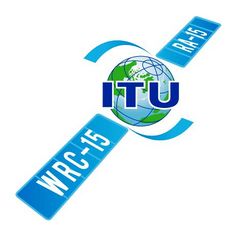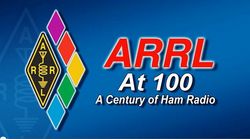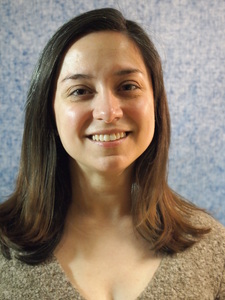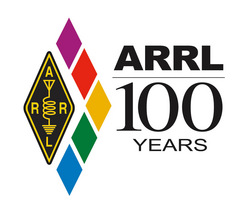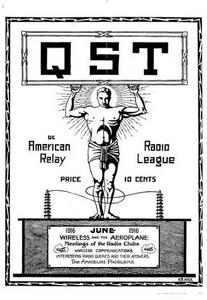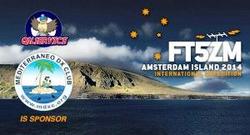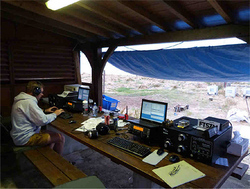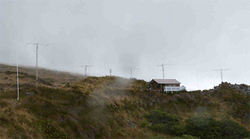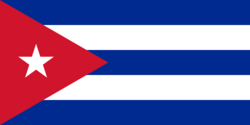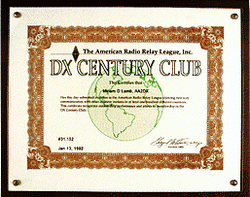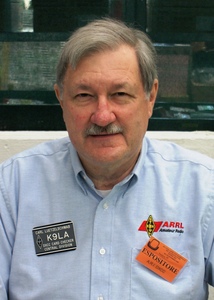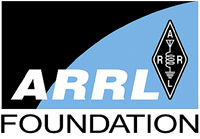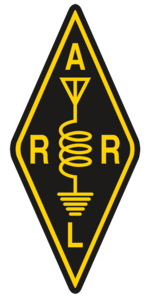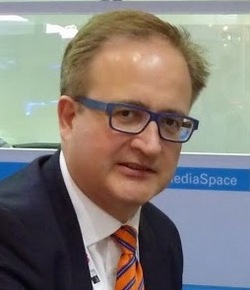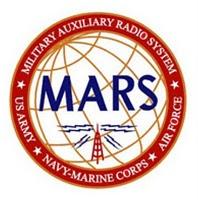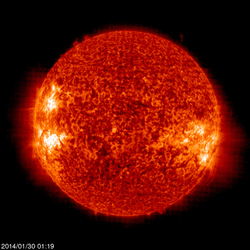 January 30, 2014 John E. Ross, KD8IDJ, Editor
| ||||||||||||||||||||
Regulatory: FCC Opens Brief Window for Comments on WRC-2015 Draft Recommendations The FCC has invited comments by February 18 on the latest batch of draft recommendations of its Advisory Committee for World Radiocommunication Conference 2015 (WRC-2015). At its January 27 meeting, the Advisory Committee (WAC) approved draft recommendations on a number of issues that will be considered by WRC-2015. Some items, including one which could possibly lead to changes to 60 meters in the long term, could affect the Amateur and Amateur-Satellite services. ARRL Chief Technology Officer Brennan Price, N4QX, is a member of the WAC, which is chartered to allow non-federal government entities to "provide to the [FCC] advice, technical support, and recommended proposals for the 2015 World Radiocommunication Conference."
"Based upon an initial review of the draft recommendations forwarded to the Commission, the International Bureau, in coordination with other Commission bureaus and offices, tentatively concludes that we can generally support most of the attached WRC-2015 Advisory Committee draft recommendations," the Commission said in a January 28 Public Notice. The FCC also seeks comment on draft proposals from the National Telecommunications & Information Administration (NTIA) as well as on the International Bureau's initial conclusions with regard to the WRC-2015 Advisory Committee draft recommendations. WRC-2012 Resolution 649 invited WRC-2015, to consider allocating "an appropriate amount of spectrum, not necessarily contiguous," to the Amateur Service on a secondary basis within the band 5250 to 5450 kHz. "In order to maintain effective and reliable communications capability throughout the sunspot cycle, allocations at regular intervals are desirable, in order to permit operation as close to the maximum usable frequency as possible," the WAC said in its draft recommendations. Incumbent services in the 5250 to 5450 kHz range include fixed, mobile, and radiolocation services. "A secondary allocation from 5275 to 5450 kHz avoids the unsuitable segment allocated to the Radiolocation Service, reduces the interval between HF amateur allocations below 10 MHz to permit reliable operation throughout the sunspot cycle, maximizes the flexibility of Amateur Service stations to effectively communicate within the secondary allocation, and fulfills their obligations to avoid harmful interference to primary services," the WAC concluded.
WRC-2015 will also consider a number of issues that could impact amateur allocations above 420 MHz, including a possible extension of the current worldwide allocation to the Earth Exploration-Satellite service in the band 9300 to 9900 MHz by up to 600 MHz "within the frequency bands 8700 to 9300 MHz and/or 9900 to 10,500 MHz." Incumbent services in the 9900 to 10,500 MHz range include the Radiolocation, Fixed, Mobile, Amateur, and Amateur-Satellite services. The Amateur Service is secondary at 10,000 to 10,500 MHz worldwide, and the Amateur-Satellite Service is secondary at 10,450 to 10,500 MHz worldwide. The FCC said comments provided by interested parties will assist it in its consultations with the US Department of State and NTIA in the development of US positions for WRC-2015. "The recommendations...may evolve in the course of interagency discussions as we approach WRC-2015 and, therefore, do not constitute a final US Government position on any issue," the FCC Public Notice stressed. Comments should reference IB Docket 04-286 and specific recommendations by WAC document number. Interested parties may file comments via the FCC's Electronic Comment Filing System (ECFS). The ARRL plans to file comments in this proceeding. ARRL Centennial: ARRL Debuts "ARRL at 100" Video As part of its Centennial celebration, the ARRL has debuted a video, "ARRL at 100 -- A Century of Ham Radio," which explains the League's history and mission over the past century. Past ARRL Manager for Media and Public Relations Allen Pitts, W1AGP, wrote and produced the half-hour presentation. It is available for club meetings and other gatherings. Pitts said he got started on the project about a year ago with a personal study of the League's history.
"Using books, old QSTs, and documents stored in Newington as sources, I eventually created a 28 foot long timeline that rolled across my office floor," he recalled. "This paper roll was then posted in the main hallway, where staff and visitors were invited to write comments and additional events on it." Last fall, the unwieldy roll was transformed into a more permanent graphic banner that became the basis for the new timeline booklets. These will be freely available at major Centennial conventions in 2014. Pitts said he realized that the timeline held an interesting storyline about the ARRL and its protection of Amateur Radio for 100 years, and he decided the next step would be to use it as the basis for scripting a video. "Unlike the classic 'Amateur Radio Today,'" Pitts said, "this new video would not be hampered by any TV broadcast restrictions, so it was made to fit into a 30 minute time slot." Al Petrunti, KA1TCH, of The New Day Group was chosen for the video production. Securing a "personality" to host the video turned out to be easier than it first seemed.
"After inquiries to professional television personalities, it was apparent that the budget could not meet their expense requirements," Pitts explained. As it happened, a host was right at hand, as QST Managing Editor Becky Schoenfeld, W1BXY, stepped forward. "Once again an amateur did excellent professional-grade work," Pitts said. "Becky had done a fair amount of stage work in the past and absolutely lights up the video with her knowledge of ham radio and obvious true interest in the topic. We couldn't be happier." Pitts solicited brief "I am the ARRL" cameo clips from around the country and included these along with impromptu clips taken at hamfests. Pitts feels the video represents some of the best script writing he's ever done, "but then, it is one of the best stories I have ever found," he added. "We often say 'If not for the ARRL we would not have ham radio as we know it,' but few people know how very true that is and how close we came on several occasions to not having ham radio." Pitts credited Petrunti's ability to quickly understand "the visions I had in my head for many video shots. Better yet, he was excellent at putting people at ease in front of the camera -- and we had a lot of people." First to view the video was the ARRL Board of Directors at its annual meeting earlier this month. "Since then it has already received many compliments from hams and professional videographers," Pitts said. The video can be seen and/or downloaded from the ARRL website and viewed on YouTube. DVDs are for sale from the ARRL online store. ARRL Directors and Section Managers received courtesy copies of the DVD and booklets. If you have the ability to show the DVD on a TV or cable outlet, contact Media and Public Relations Manager Sean Kutzko, KX9X, for special DVDs or extra high-resolution files. ARRL Centennial: W1AW Centennial Operations Now in Minnesota and Texas The ARRL Centennial "W1AW WAS" operations taking place throughout 2014 from each of the 50 states are in Minnesota (W1AW/0) and Texas (W1AW/5) until February 5 at 0000 UTC (the evening of February 4 in US time zones), when they will shift to Georgia (W1AW/4) and Hawaii (W1AW/KH6). During 2014 W1AW will be on the air from every state (at least twice) and from most US territories, and it will be easy to work all states solely by contacting W1AW portable operations.
In conjunction with the 100th anniversary of the ARRL, the ARRL Centennial QSO Party kicked off January 1 for a year-long operating event in which participants can accumulate points and win awards. The event is open to all, although only ARRL members and appointees, elected officials, HQ staff and W1AW are worth ARRL Centennial QSO Party points. Working W1AW/x from each state is worth 5 points per contact. To earn the "Worked all States with W1AW Award," work W1AW operating portable from all 50 states. (Working W1AW or W100AW in Connecticut does not count for Connecticut, however. For award credit, participants must work W1AW/1 in Connecticut.) A W1AW WAS certificate and plaque will be available (pricing not yet available). ARRL Centennial: A Century of Amateur Radio and the ARRL During 1916, the art and science of radio advanced by leaps and bounds. The oscillating Audion was the subject of experimentation by professional and Amateur Radio operators, and receiving performance was much advanced by the end of 1916. The ARRL continued to grow. Comments from members and QST subscribers lauded the magazine. One lovely bit of praise said, "Your QST received and I think it is all to the mustard." The first QST article by "The Old Man" appeared in the January 1916 issue. Hiram Percy Maxim proposed trunk lines across the country for relaying messages methodically (QST, Feb 1916), and they soon went into operation. The League and its relay stations showed skeptical government officials that amateurs could efficiently relay messages. A Washington's Birthday message that originated at Rock Island Arsenal was relayed by many hams, and was delivered to various mayors and governors all across the country.
Thoughts soon turned to mating two exciting new technologies -- "Wireless and the Aeroplane" (QST, Jun 1916). Also by this time, The Lynn News in Massachusetts was providing baseball scores to a local amateur to be broadcast over his station's 30 mile radius. Radio was grabbing the public's attention. In mid-1916, with World War I in progress but the US not yet involved, the president called out the National Guard in all States. The Army and amateurs began to discuss ways that portable amateur stations could be quickly loaded onto Army trucks and transported to points where it needed communication. David Moore, 1ZZ, a member of the Connecticut National Guard, was called up for that service. Moore had been one of the ARRL's original Governors. Next week: Amateur Radio and WW I -- before, during, and after. -- Al Brogdon, W1AB DX: Amsterdam Island FT5ZM DXpedition Making a Big Splash
After a January 26 start, the 14-member Amsterdam Island FT5ZM DXpedition team is on the air from two camps on the small South Indian Ocean island outpost. The FT5ZM operators have been attacking gigantic pileups that sometimes spread across 10 or 15 kHz or more of spectrum. Despite the imprecations of the self-appointed "DX police," many stations continue to call FT5ZM on its transmitting frequency instead of up the band where the operator is listening. FT5ZM operators use split-frequency operation. Considerable intentional interference has slowed progress too. The kickoff to this approximately $450,000 venture to provide a rare DXCC entity to eager DXers around the globe came in the wake of a difficult sea voyage and dozens of trips from the M/V Braveheart via Zodiac to the island to get the gear ashore. Team member Jerry Rosalius, WB9Z, called it "one of the (if not the) roughest DXpeditions [I've] ever been on." Team Leader Ralph Fedor, K0IR, said the island's logistics make activities time and energy consuming. "For example, at the Antonelli site the grasses are chest high and conceal holes and rocks," he said, adding that the terrain varies wildly. "All this makes antenna installation, placing radials, and running feed lines very difficult." The hike between the two sites is rough and can take nearly 2 hours. Amsterdam and St Paul Islands is the seventh most-wanted DXCC entity, according to Clublog. The ARRL has made a Colvin Award grant to help support the Amsterdam Island DXpedition. The FT5ZM DXpedition appears to put putting in good signals to all areas of the world, as it follows propagation from band to band, handing out the new one at a rapid rate. "We are struggling with noise on 12 and 30 meters and occasionally on 15," Fedor said January 30. "While we work to resolve this, we ask your patience, if we have difficulty hearing you on these bands. After installing our 160 meter antenna, taking it down, and replacing it, [the] first full night on 160 meters netted 500 QSOs We are very happy about that."
Difficulties aside, the team is reported to be in good spirits. As of January 29, the team already had more than 36,000 contacts in the log. Frank Donovan, W3LPL, has advised US stations to turn their beams to peak the FT5ZM signal. Given the DXpedition's location relative to the US, he explained, it may arrive at different headings on different bands and times of day. The team will not have e-mail service during the DXpedition and pilot stations do not have log or QSO information.
"The only channel to pass your remarks and suggestions to the team is to contact one of our pilot operators assigned to your area," a January 27 website post advised. "Please do not contact the Pilot Station about a busted call or if your call is missing from the online log. Keep a record of your QSO details and contact the QSL manager after the DXpedition. Alternately, work FT5ZM again." The DXpedition is not accepting sked requests. The FT5ZM DXpedition has a Facebook page. DXers also can follow its activities via Twitter or RSS feed. The DXpedition has allocated 18 days "to set up, conduct the DXpedition, and tear down for departure." Discovered by the Spanish in 1522, Amsterdam Island is under the administration of Terres Australes et Antarctiques Francaises (TAAF), which controls access to the islands in the French Antarctic Territories. The UN Global Atmosphere Watch (GAW) maintains a presence on the island. -- Thanks to The Daily DX for some information DX: Cuba Provides its Hams a Slice of 60 Meters Cuba's Ministry of Communications is reported to have made available to its radio amateurs a 12 kHz segment of 60 meter spectrum, instead of individual channels, as the US and other countries have done. Access is not immediate. Hams in Cuba must obtain approval and a license modification. Access to 5418 to 5430 kHz will be on a secondary basis, with emphasis on its use during emergencies.
"Cuba is in the path of the Caribbean hurricanes every year, and this band allows a steady communication path for all the island," said Pavel Milanes Costa, CO7WT, in Camagüey, who posted the news on the Internet. Cuban hams will be allowed to use SSB, CW, and PSK31 and PSK63 in the new mini-band. Once an official emergency is declared in Cuba, band usage will be restricted to emergency traffic only. Hams in Cuba may run 50 W (10 W for Novice licensees) on 60 meters, although 100 W would be permitted in an emergency if needed to provide a reliable link. At World Radiocommunication Conference (WRC) 2007 it was Cuba that suggested establishing an allocation to the Amateur Service on a secondary basis within the band 5250 to 5450 kHz. The item failed at WRC-2012 but will be on the agenda of WRC-2015 as Agenda Item 1.4 (see "FCC Opens Brief Window for Comments on WRC-2015 Draft Recommendations," above). The FCC authorized five channels for US radio amateurs after consulting with the National Telecommunications & Information Administration (NTIA) regarding ongoing government use of that region of the spectrum. The US channels were specifically chosen to avoid Amateur Radio interference to government operations. DX: Portugal's Radio Amateurs Granted Temporary Access to 1850-2000 kHz for Contests The Portuguese telecommunications regulator ANACOM has granted radio amateurs temporary use of the extended 160 meter band segment 1850 to 2000 kHz to participate in several major operating events during 2014. "The authorization for temporary use of 1850 to 2000 kHz may not be used for other purposes within the amateur service, nor any other radio services," the ANACOM announcement said.
Hams in Portugal may use that part of 160 meters to participate in the CQ World Wide 160 Meter Contest (CW); the ARRL International DX Contest (CW and phone); the CQ World Wide 160 Meter Contest (SSB); the CQ WW WPX (CW and phone); the King of Spain Contest (CW and phone); the IARU HF Championship; the CQ WW DX Contest (CW and phone), and the ARRL 160 Meter Contest. Operations may not interfere with other radio services. ANACOM said the temporary grant does not infer any expectation regarding future use of the band segment. On 160 meters, hams in Portugal have access to 1810 to 1830 kHz with 200 W maximum EIRP, and 1830 to 1850 with up to 1500 W maximum EIRP. -- ANACOM DX: 7Z1ES, T6ZG Operations Approved for DXCC Credit
The ARRL DXCC Desk has approved the operation of 7Z1ES -- Saudi Arabia -- and the current operation of T6ZG -- Afghanistan -- for DX Century Club credit. If a request for DXCC credit for these operations has been rejected in a prior application, contact ARRL Awards Branch Manager Bill Moore, NC1L, to be placed on the list for an update to your record. Please note the submission date and/or reference number of your application in order to expedite the search for any rejected contacts. DXCC is Amateur Radio's premier award that hams can earn by confirming on-the-air contacts with 100 DXCC "entities," most of which are countries in the traditional sense. You can begin with the basic DXCC award and work your way up to the DXCC Honor Roll. Learn more. -- ARRL Awards Branch Manager Bill Moore, NC1L Your League: K9LA Named to Receive the 2013 Bill Orr, W6SAI, Technical Writing Award
Carl Luetzelschwab, K9LA, of Fort Wayne, Indiana, has been named the winner of The Bill Orr, W6SAI, Technical Writing Award for the 2013. The ARRL Foundation Board of Directors selected Luetzelschwab at its January 21 meeting for his article "The Sun and the Ionosphere," which appeared in the March 2013 issue of QST. Luetzelschwab won the March QST Cover Plaque Award last year for the same article. Luetzelschwab, who frequently writes on solar and propagation phenomena and trends, is the "Propagation" columnist for NCJ -- National Contest Journal. "I am honored to receive the William Orr Award from the ARRL," Luetzelschwab said. "Orr's Radio Handbook (23rd ed) is one of my favorite references in my library, because of its practical information." K9LA received his Novice license (WN9AVT) in 1961, upgrading to General (WA9AVT) the following spring. He obtained K9LA in the mid-1970s. His Amateur Radio interests include propagation, DXing, contesting (he was NCJ editor from 2002 until 2007), antennas, and vintage equipment, and he has contributed many articles to Amateur Radio publications. Luetzelschwab holds both bachelor's and master's degrees in electrical engineering from Purdue University. He recently retired after 41 years as an RF design engineer. The Bill Orr, W6SAI, Technical Writing Award is bestowed each year to the QST author who writes an outstanding QST article or series on new or existing technologies or on methods or means of amateur communication. Articles must be written in an easily understood style, worthy of the Bill Orr "stamp of approval" and encourage interest and expand the knowledge and understanding of amateurs who may lack a strong technical background. The QST editorial staff serves as the selection panel and recommends the winner from a review of the year's QST articles to the ARRL Foundation Board for final approval at its Annual Meeting. The award comprises an engraved plaque and $250, to be presented at an ARRL convention.
Established in 1973 by the ARRL, the ARRL Foundation is an independent IRS 501(c)(3) organization that administers programs to support the Amateur Radio community. The Foundation is funded entirely through the generosity of radio amateurs and friends. ARRL Foundation programs for Amateur Radio award scholarships for higher education, grants for Amateur Radio projects, and special Amateur Radio program grants for The Victor C. Clark Youth Incentive Program and The Jesse A. Bieberman Meritorious Membership Program. Education: Foundation for Amateur Radio (FAR) Invites Scholarship Applications The non-profit Foundation for Amateur Radio (FAR) is inviting applications for the Amateur Radio-related scholarships it administers. These academic awards are sponsored by both individuals and by Amateur Radio clubs from across the US. The FAR scholarship application process is open to Amateur Radio licensees worldwide. Awards range from $500 to $5000. Applications are due by April 30, 2014. Submissions sent by mail must be postmarked by April 30. Late applications will not be considered. Recommendations for the Chichester and QCWA scholarships must be received or postmarked no later than May 15, 2014.
Applicants may type their information into the electronic form on the FAR website. This is the preferred method of submission, although handwritten forms also are acceptable. Applicants may add pages as necessary to complete any answers. Electronic submissions, such as MS-Word or PDF files, are preferable. If possible, scan any additional letters of recommendation or endorsements into PDF files. Include the number of the question to which they apply. Official or unofficial transcripts may be submitted but are not required; it is preferred that these documents be scanned into PDF files as well. Applications may be submitted via e-mail. This is the preferred method. Applicants must check the block above the signature line; doing so takes the place of a physical signature for electronic submissions. E-mail submissions in which this box is not checked will not be considered. Applications also are accepted via fax to (877) 691-2725, or via USPS mail to FAR Scholarship Committee, PO Box 911, Columbia, MD 21044. FAR's scholarship program is one of the largest for Amateur Radio licensees in the US. The organization's purpose is to further Amateur Radio in all of its various facets. FAR sponsors training, seminars, and other events in support of Amateur Radio. Milestones: Past ARRL Roanoke Division Director Paschal L. "Andy" Anderson Jr, N4AE, SK
Past ARRL Roanoke Division Director P.L. "Andy" Anderson, N4AE (ex-W4MWH), of Danville, Virginia, died January 27. He was 99. Anderson served on the ARRL Board of Directors from 1953 until 1967, spanning the tenures of ARRL President Emeritus G.L. Dosland, W0TSN (SK), and President Herbert Hoover, Jr, W6ZH (SK). "He was a wonderful story/joke teller, excellent CW op, and a very successful building contractor," said Bill Perkins, KC4D, who had visited Anderson at his retirement condominium January 24. "I and the entire Amateur Community have lost a great friend and role model." He was a full charter life member of the ARRL. Services were January 29 in Danville. Milestones: IARU President Appointed Queen's Counsel in Alberta
International Amateur Radio Union (IARU) President Tim Ellam, VE6SH/G4HUA, of Calgary was among those appointed Queen's Counsel in the Canadian Province of Alberta. Attorney General Jonathan Denis, QC, announced the names of 114 lawyers to be admitted as Queen's Counsel for "outstanding contributions to legal and public life." The list includes both public and private sector lawyers who have practiced in communities across the province. "The Queen's Counsel designation recognizes the exceptional capabilities and talents of this year's impressive group," said Jonathan Denis, Alberta's Minister of Justice and Solicitor General. "These lawyers are a credit to their profession and to their province." Read more. Milestones: Army MARS Parent Organization Announces Changing of the Guard
Brigadier General John B. Morrison Jr has been tapped to lead the Army's Network Enterprise Technology Command (NETCOM) -- the parent organization of the US Army Military Auxiliary Radio Service (MARS). The MARS program consists of Amateur Radio operators who are interested in military communications on a local, national, and international basis as an adjunct to normal communications. Morrison served previously as commanding general of the 7th Signal Command (Theater), the NETCOM subordinate unit serving the Western Hemisphere. A Reserve Officer Training Corps (ROTC) alumnus, Morrison was honored in 2012 as one of the federal government's 100 best technology problem-solvers of the year. He will succeed Brigadier General Peter Gallagher, who has been NETCOM's acting commander. Morrison has served in Bosnia, Iraq, and Germany. He is a graduate of James Madison University, Webster University, and the Industrial College of the Armed Forces. -- US Army MARS via Bill Sexton, N1IN The K7RA Solar Update Tad Cook, K7RA, Seattle, Washington, reports: Another week of solar ambiguity, with sunspot numbers down, but solar flux up. Average daily sunspot number declined from 113.3 to 101.4, but average daily solar flux moved from 133.4 to 142.9.
The latest prediction has solar flux at 155 on January 30-31, 150 on February 1-2, 155 on February 3-5, 160 on February 6, 200 on February 7-8, then 180, 170 and 150 on February 9-11, 130 on February 12-13, 125 on February 14-15, 130 on February 16-17, and 135 on February 18-22. Predicted planetary A index is 8, 12 and 8 on January 30 through February 1, 5 on February 2-6, 8 on February 7-8, 5 on February 9-16, 8 on February 17-18, and 5 on February 19-22. The Friday bulletin will feature a review of solar activity averages, even though the bulletin is issued just prior to the end of the month. We'll also have reports from readers. Readers may send reports and observations to K7RA via e-mail. Just Ahead in Radiosport
Upcoming ARRL Section, State and Division Conventions and Events
Find conventions and hamfests in your area. ARRL -- Your One-Stop Resource for Amateur Radio News and Information Join or Renew Today! ARRL membership includes QST, Amateur Radio's most popular and informative journal, delivered to your mailbox each month. Listen to ARRL Audio News, available every Friday. Subscribe to... NCJ -- National Contest Journal. Published bi-monthly, features articles by top contesters, letters, hints, statistics, scores, NA Sprint and QSO Parties. QEX -- A Forum for Communications Experimenters. Published bi-monthly, features technical articles, construction projects, columns and other items of interest to radio amateurs and communications professionals. Free of charge to ARRL members: Subscribe to the ARES E-Letter (monthly public service and emergency communications news), the ARRL Contest Update (bi-weekly contest newsletter), Division and Section news alerts -- and much more! | ||||||||||||||||||||

